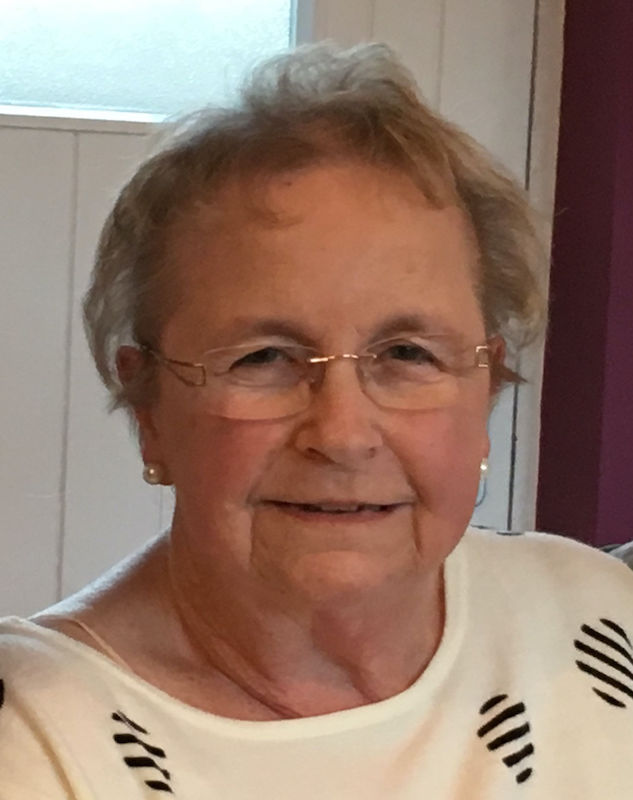The MS Society is looking for people with multiple sclerosis (MS) to provide vital information on how coronavirus is affecting them.
MS damages nerves in the body and makes it harder to do everyday things, like walk, talk, eat and think.
Having MS alone does not increase your risk of getting Covid-19, but many people with MS are at an increased risk of infection, or severe complications.
Thousands with the condition are classified as extremely vulnerable, and have been asked by the Government to self-isolate for a period of 12 weeks.
Morna Simpkins, Director of MS Society Scotland, said:
“More than 15,000 people live with MS in Scotland, and we are asking every one of them to join this study to help us understand more about Covid-19.
“There’s so much we don’t know about this virus and only real-world data will help us change that.
“This is a worrying and uncertain time for all of us, but many people living with MS are especially vulnerable, and this study will allow us to support them as best we can.”
During the first 24 hours alone, 1,174 people with MS completed the questionnaire – including 11 with potential cases of coronavirus – but more people are needed to help researchers fully understand the virus and its impact.
Professor Richard Nicholas is co-leading the study, which is run by the UK MS Register.
He says:
“MS is unpredictable and different for everyone, and we understand some people are at greater risk from coronavirus than others – such as those who are taking MS treatments that lower the immune system.
“But all the current advice is based on our understanding of how treatments work, and we urgently need more data to establish the facts.
“For example, we anticipate there could be some treatments that actually lower a person’s risk level of contracting the virus, but can only confirm this through research.
“This simple online survey can help us identify when and how symptoms of Covid-19 occur in people with MS, so we can provide the best possible guidance on treatment and better support for them in the future.”
Responses also reveal changes in behaviour in response to Covid-19, and indicate that 90% of people with MS in the UK are currently in self-isolation.
One reason this research must be conducted now rather than after the crisis has peaked is to avoid the issue of recall bias, where memories are affected by any new information learned about how the virus.
Study co-lead Professor Nikos Evangelou, explains:
“There is a lot of anxiety among people with MS right now, but we’re hearing from many people who’ve been infected that they are recovering well.
“We need to be systematic in collecting data to get a realistic picture of how this virus really affects the community.
“As testing becomes more widely available and we know who did and didn’t have Covid-19, we’ll be able to look back at our results and determine whether different treatments have a negative or positive impact on the risk of getting it, or the severity of symptoms.
“In this way we will be able to generate better, more accurate advice.
“That’s why every response counts.”
The MS Register– an ongoing study based at Swansea University, and funded by the MS Society – will publish regular updates of their results so clinicians and people with MS can benefit from the findings, and make better decisions about treatment throughout the pandemic.
Sue Polson (pictured), 70 from Edinburgh, has been living with MS for more than 22 years.
Sue and her husband have both been identified as high risk during the Covid-19 pandemic and, as a result will now be shielding until at least July.
She shared her experiences of the ‘lockdown’ living with MS, saying:
“Having survived the awful experience of applying for PIP [The controversial Personal Independence Payment], within a couple of weeks we were all swamped with the news of Covid-19.
“At the end of March, I received a letter from the Scottish Government to tell me I had been identified as a high-risk patient.
“My husband also received these restrictions a week later.
“So, we began shrinking our lives by reducing contact with friends and family.
“A few days later, we received another message to tell me I was to be ‘shielded’ which meant I could not go outside for three months.
“Again, my husband received the same letter one week later so we are both confined in our flat until July.
“So far, we are still speaking though I’m not sure if that will be possible for three months!
“Frustratingly, I have been working to get myself back to some sort of normality after three weeks in hospital following a fall.
“I was at the stage of going out in the wheelchair and using a rollator in the house.
“With the help of physios, I was about to try extending my range to going outside with the rollator.
“It obviously wasn’t meant to be as the letter arrived and put a stop to that.
“So now I am following the exercises for wheelchair users on the MS Society’s website.
‘It’s not glamorous, but it’s all I can do.
“I do feel I am losing confidence and momentum.
“The worst thing is being unable to see my grandchildren, my son and daughter-in-law and our many friends who are part of our lives and visit regularly.
“I miss the pleasure of seeing everyone face-to-face and hearing all the news.”
To take part, people with MS click here.
For the latest information on how people with MS are affected by Covid-19 visit mssociety.org.uk/coronavirus



